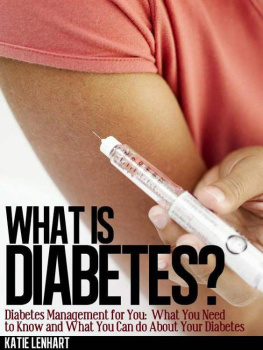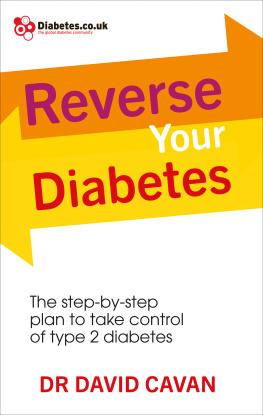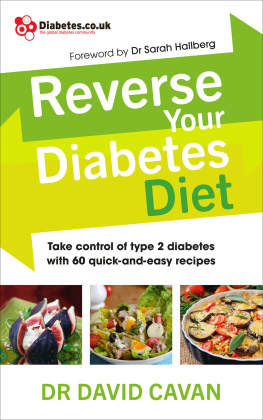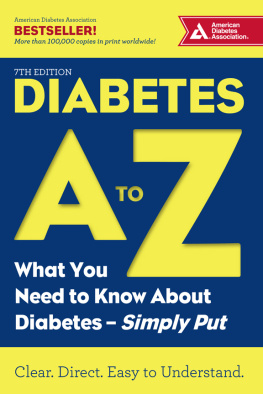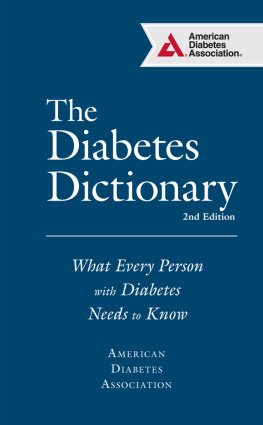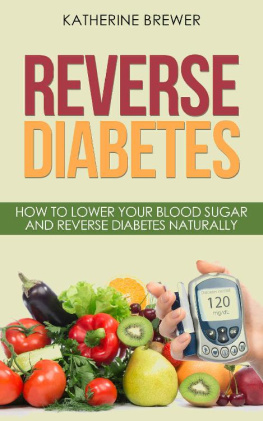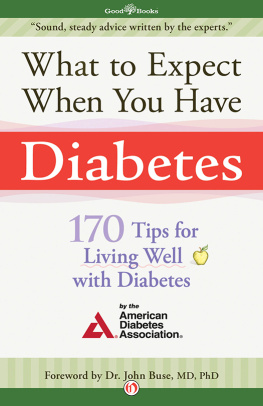What is Diabetes?
Diabetes Management for You:
What You Need to Know
And What Y ou Can do About Your Diabetes
By Katie Lenhart
Copyright 2012
All Rights Reserved 2012 Katie Lenhart
Disclaimer and terms of use: No information contained in this book should be considered as physical, health related, financial, tax, or legal advice. Your reliance upon information and content obtained by you at, or through this publication is solely at your own risk. The author assumes no liability or responsibility for damage or injury to you, other persons or property arising from any use of any product, information, idea, or instruction contained in the content provided to you through this book.
Table of Contents
Introduction
While being diagnosed with diabetes may be alarming to most people, once you learn all there is to know about these dreadful disease, you can be well on your way to addressing it and reversing it as well. It is a serious disease and one that should be taken seriously.
So many people are affected by it, but it is not a death sentence as long as you know the facts and take action to combat diabetes. Once I had learned just what diabetes was, I took the necessary steps that I needed to take charge of the diabetes and I turned it around completely.
It is a life changing process and must be followed for the rest of your life. I did it. You can do it too. Once you make up your mind that you want to be healthy and no longer live with this condition, it is then that your life and your health will improve.
What I write in this book comes from experience. I wont bore you with a lot of fluff and smoke. I just want you to have the cold hard facts and solutions so that you dont have to suffer any longer with diabetes.
You are worth it and you know it! Get healthy and stay healthy. My mom used to say, If you have your health, you have everything! That is so true! Thanks mom!
Diabetes Explained
Now you may know a little bit about diabetes or perhaps you've had someone try and explain it to you and just left you completely confused. Either way, I am going to help you understand what diabetes is and everything you need to know about it. And you're going to have fun doing it. Believe it!
Knowledge is power and by knowing everything you can about diabetes you are going to set yourself up to make the best decisions you can for your health and your head!
Let's start with a little bit of trivia. Diabetes in Greek means to siphon. And in China diabetes is referred to a 'sweet urine disease'. Makes sense!
Diabetes mellitus is a type of metabolic disorder. And your metabolism refers to how your body breaks down and processes food. Reversing time back to your biology classes, you may recall that what you eat is broken down into glucose.
Glucose is formed in the blood and is the main source of fuel for your engine. Are you still with me?
Moving on. Normally when food is digested glucose filtrates into the bloodstream and your cells get their hunger satisfied and grow. This doesn't happen without insulin. Insulin makes it ok for cells to accept glucose.
Insulin is produced by the pancreas. And when you eat, the pancreas releases insulin to help diffuse glucose into your eagerly waiting cells. This lowers your blood sugar.
When you've got diabetes, the level of glucose is too high in your blood, often called hyperglycemic. So we now have a problem. Your body either isn't making insulin, not enough, or your cells just aren't accepting it.
The results are you've got too much sugar in your blood. This excess glucose will be directed out your body in your urine. So your blood has glucose but your body cells don't. And that's not a good thing.
If this is the scenario you've got diabetes.
My Thoughts
It's really important that you keep diabetes in a positive light regardless of your situation. Understanding that prevention is the key and how you think is going to reflect on your health and ability to enjoy life to the fullest. There is good in everything so keep your chin up and mind open!
Next up we'll discuss the different kinds of diabetes.
Diabetes Types
Now that you know a little bit about what diabetes is, we're going to look into the three main types of diabetes. They are Type 1, Type 2 and Gestational Diabetes.
Type 1
This is where no insulin is produced and people are born with this. There are estimated to be over 3 million Americans with it right now. This figure is increasing about 3% per year. And every year more than 15,000 children and 15,000 adults are diagnosed.
Only about 5% of people with diabetes have Type 1.
The cause of Type 1 diabetes is unknown, but research suggests genetics, environmental and lifestyle choices are center stage.
Type 2
This is where there isn't enough insulin produced or it's not being absorbed properly so it can allow glucose into the cell to give you energy. Type 2 diabetes could be preventable and lifestyle changes will directly affect the degree to which it will control your life.
In other words your actions will dictate the degree in which it controls you.
Research suggests that approximately 23.6 million people have Type 2 diabetes. And of these, over 5 million aren't aware they have it. That's scary!
Gestational Diabetes
This kind of diabetes just appears during pregnancy for some women. Usually it happens around the 24th week of pregnancy.
Mothers have an increased risk of developing it if they:
are older than 25 and pregnant
have a family history of diabetes
delivered a child over 9 pounds or a baby with a birth defect
have elevated blood pressure
have too much amniotic fluid
are overweight before conceiving
The good news is that blood sugars usually return to normal shortly after the baby is born.
My Thoughts
Diabetes can creep up on you in life if you are at risk and especially if you are carrying a few extra pounds. And understanding the different types of diabetes is going to help you make better decisions in your life as a whole.
Next up we are going to discuss the symptoms you should keep an eye out for. And if your gut is telling you something just isn't 'right,' make sure you go see your health care provider.
Expected Symptoms
Symptoms are different for everyone and with Type 2 there often aren't any, or they may be mild and often just ignored. It's not like a bell goes off in your head telling you you've got diabetes because you are thirsty or losing weight!
With Type 1 the symptoms usually hit you suddenly and are more severe. Makes sense because your body is receiving sugar into the blood, but has no way of transferring it out of the blood and into your cells for energy.
Here are a few common symptoms to keep an eye open for.
Unusually excessive hunger and thirst.
Increased urination - sometimes every hour.
Unusual weight loss or gain.
Excessive tiredness - a 'different' kind of tiredness.
Nausea or vomiting.
Blurred vision.
An increase in vaginal infections.
An increase in yeast infections.
Dry mouth.
Slow healing with bruises and cuts.
Itchy skin - especially in vaginal or groin area.
Please seek immediate medical attention if you are nauseous, unusually week, thirsty, have abdominal pain and are urinating a lot.
Likewise if you are having trouble breathing and your breath smells like nail polish remover you should go to the hospital. This could be a deadly complication of Type 1 diabetes called ketoacidosis. And this is definitely not something you should fool around with.
My Thoughts
The key here my friends is awareness and arming yourself with information. Ignoring symptoms because you are afraid of what you will discover is not acceptable and it's not going to fix anything.
Next page
